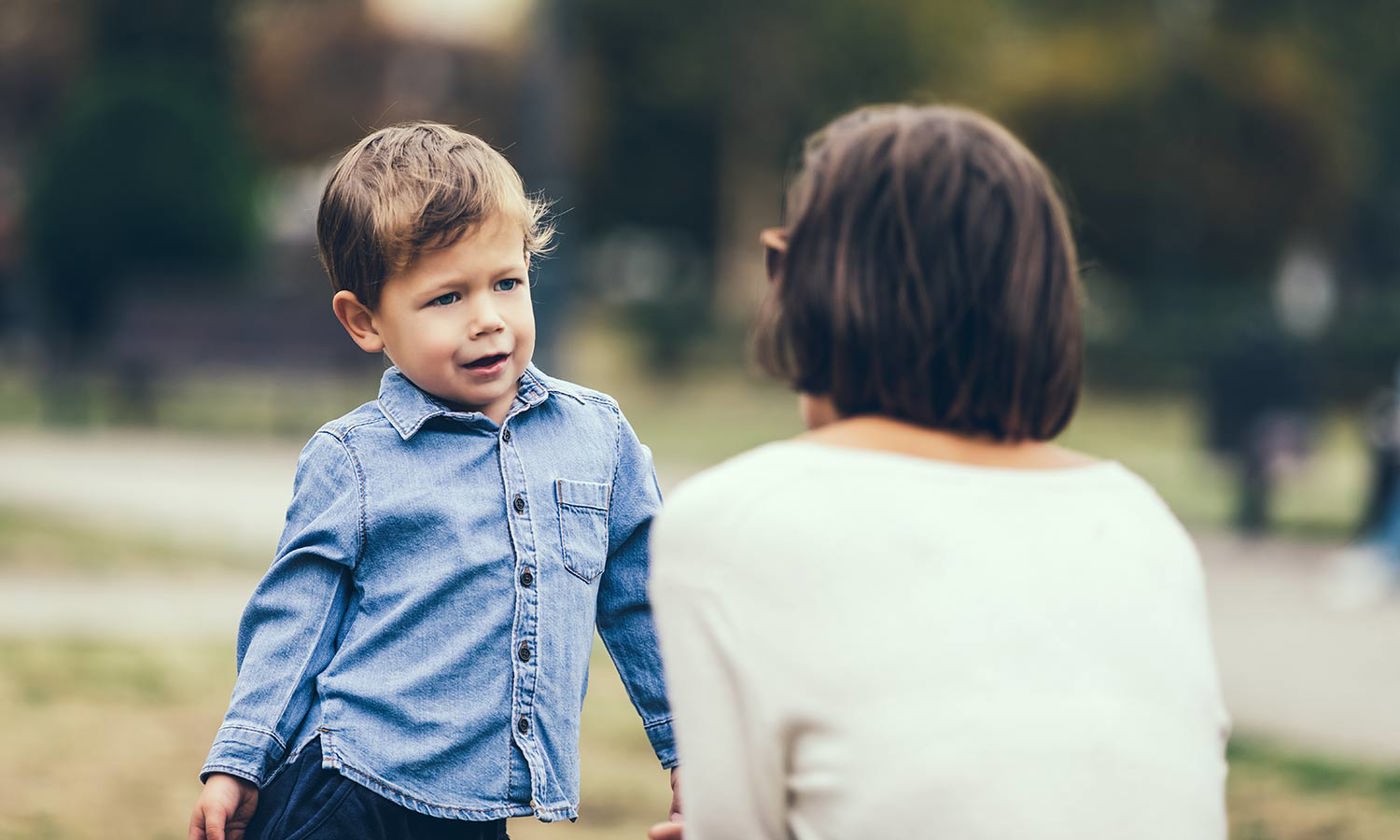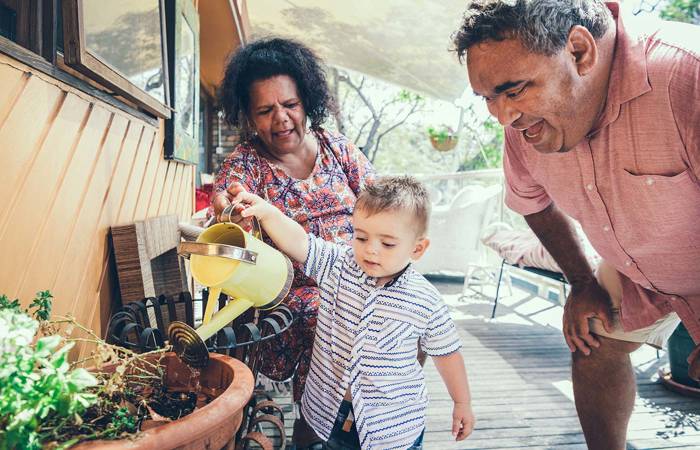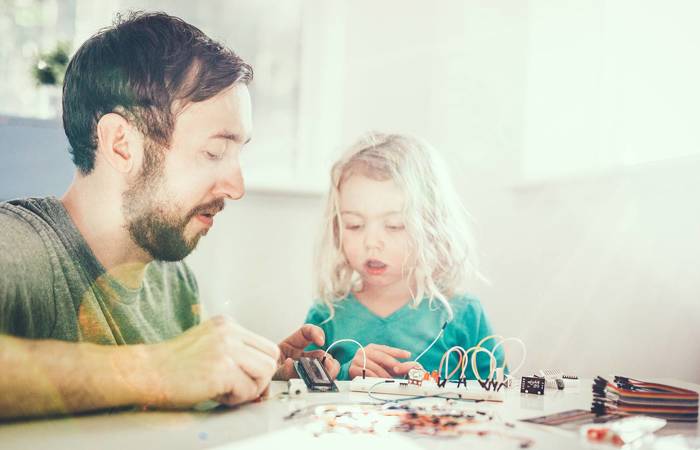Like what you see?
Sign up to receive more free parenting advice.
Thank you for subscribing to our newsletter!
Child Development

Credit: iStock.com/Phique Studio
How often have you heard adults say “be good” to children? Many times I am sure. And yet, do we ever stop to think about what those words actually mean?
In this article, I would like to explore the idea of what we think ‘being good’ means to us as parents, grandparents and carers of young children.
I suggest that we need to pay as much attention to the behaviours we want to encourage in our very young as we do to those behaviours we don’t.
Encouraging the behaviours you want
At times we have no alternative but to give our attention to children’s problem behaviours. As parents, grandparents and carers, we all know that young children have the capacity to bring us to tears sometimes with the things they do (or won’t do). Anyone who has tried to manage a tantrum in a public place knows the feeling of inadequacy well.
However, rather than always ‘managing’ young children’s behaviour, could we also focus on ‘encouraging’ the behaviours we would want?
As a teacher of young children for many years, one of the sayings that guided my day-to-day work was to ‘catch them being good’. I learned that focusing on the things children were doing well resulted in a much more pleasant experience for everyone.
But if we are not clear about what ‘being good’ means, we will miss the chance to encourage and support some important behaviours.
Stop and think for a moment about the behaviours that you don’t want to see in your children: the ‘problematic’ behaviours. Most parents are very clear about these: no biting, fighting, stealing, lying etc, and the list goes on.
Think about your list for a moment. What is the basis for your concern? Is it that the behaviour is harmful to the child? Is it that the behaviour will hurt others? Is there are sound reason for this behaviour concern or is it simply that ‘everyone else’ expects the behaviour? Is it that you think you will be judged as a parent by this behaviour?
Stay up to date with the latest news and articles from First Five Years
Thank you for subscribing to our newsletter!
What are the behaviours you value?
I have another question for you to consider: what are the behaviours you want to see in your children? Take a moment to think and make a list. Are you as clear about these behaviours or did you have a bit of trouble listing them? Perhaps we are not so clear about the behaviours we value because we are so focused on the troublesome things our children do.
We need to do some serious thinking and talking about the sorts of behaviours we want to see in children.
As a teacher, educational leader and researcher, I have talked with groups of parents over many years now. As a result of this work, I came to realise that when I asked parents what they wanted their children to be, they were clear about the skills, knowledge etc they wanted to see in their own children. For example, they wanted their children to listen to, and follow instructions. Was that on your list?
However, when I asked parents about what sort of world they wanted for their children as adults, I got very different answers. Then parents volunteered ideas such as a fair world: free of hatred and violence.
I suggest that these much bigger ideas should guide our thinking when we are thinking about young children’s behaviours.
So, can we think more carefully about the behaviours we want to encourage in our children? What sort of behaviours will contribute to a fair world? Maybe thoughtful acts such as sharing, helping, comforting and supporting others might contribute to a better world? Perhaps courageous and brave acts are also important?
For us to see the positive things our very young children do, we need to let go of some of our ideas about them. Let me illustrate this point. In the past, much child development research focused on what babies and children couldn’t do rather than what they are doing.
So, for example, we were told that until children reach the age of four or five, they will only ever see the world from their own perspective. To use the theorists words they are ‘ego-centric’. If we see children this way, we will miss many of the things they do that demonstrate that they are quite capable of considering other people’s needs and wishes.
To give an example, I remember sitting on a verandah step many years ago with my two and a half-year old grandson. He suddenly stood up and started to go inside to get a drink. I still remember my surprise when he turned to me and asked whether I wanted a drink too. Why was I surprised? Well, I had studied child development theory for many years and this was not ego-centric behaviour, this was considering another person’s needs and wants. I nearly missed this behaviour because I was so grounded in what was not supposed to happen at this age.
Acknowledge good behaviour
Once we start looking for these small acts of consideration, we will see more of them. Our responses to them will determine whether the child continues and develops their capacity to consider other people’s needs and wants.
So, how do we respond? Sometimes, the response is very simple. For example, when a baby offers a toy to you, they are beginning to explore their relationship with you. If you ignore the offer by looking away or not touching or holding the toy, the baby learns that you are not interested.
Just by our attention or lack of it, we are either sustaining or destroying the chance that the baby will reach out again. This is the beginning of the baby’s understanding of another person’s perspective. The more often you are able to respond in some way, the more likely it is that over time, the baby will continue to reach out to others.
So, in future when a child offers to assist you in any way, consider the child’s feelings. Acknowledge their thoughtfulness!
I use the word acknowledge rather than praise very deliberately here. Avoid the generic “Good girl/boy”. These words are too general for the toddler or child to know exactly what it is that they have done. Be specific! You could say something like, “that was kind”, “Josie really needed that” or,” thank you for thinking of me”.
Acknowledgement can mean putting out a hand to accept an offer, saying “thankyou” as you would another person, or simply smiling to let the child know you recognise and appreciate their act.
Such acts contribute to a much fairer, happier and kinder world, not just in the future, but in our day-to-day living with each other. Value and pay attention to them.






